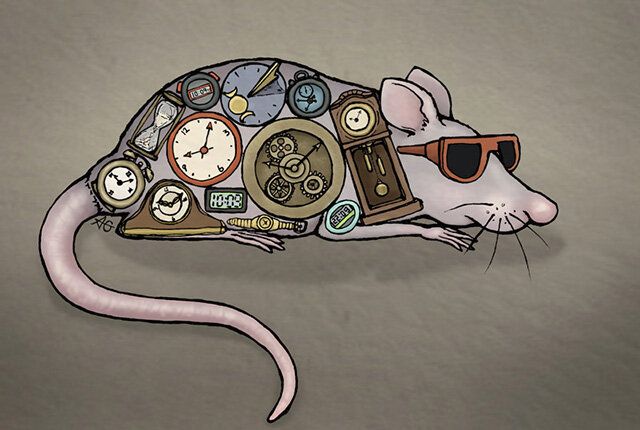Squids, octopuses, cuttlefish, amphibians, and chameleon lizards are among the animals that can change the color of their skin in a blink of an eye. They have photoreceptors in their skin that operate independently of their brain. The photoreceptors are part of a family of proteins known as opsins.
Mammals have opsins, too. They are the most abundant proteins in the retina. These light-sensing photopigments are responsible for color vision (cone opsins) and vision in dim light (rhodopsin). While previous studies have suggested that mammals might express opsin proteins outside the eye, there was little information on what functions they might influence.
A study published Oct. 10 in Current Biology has now found that a type of opsin known as neuropsin is expressed in the hair follicles of mice and synchronize the skin’s circadian clock to the light-dark cycle, independent of the eyes or brain.
